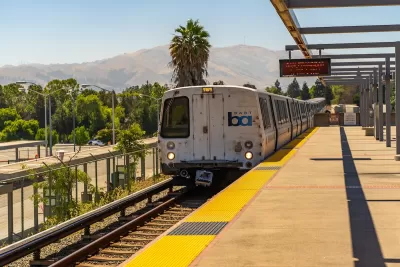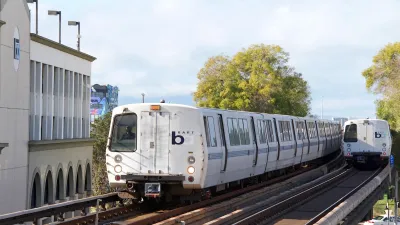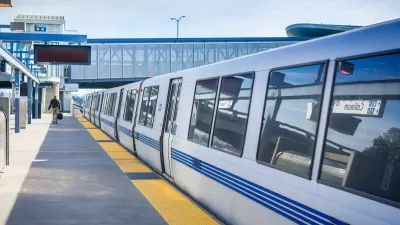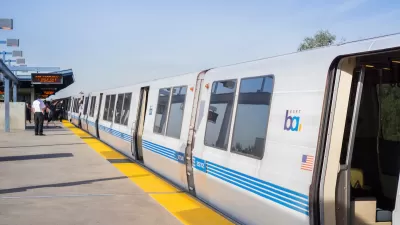The transit agency says it needs more state and federal support to meet its operating costs and avoid a growing budget gap.

Bay Area Rapid Transit (BART) riders in the San Francisco Bay will see a 5.5 percent increase in fares starting on January 1, reports Aidin Vaziri for The San Francisco Chronicle.
According to Vaziri, “BART officials say the increase is essential to support ongoing operations and to address a growing budget deficit, which is projected to reach $35 million by 2026 and balloon to $385 million by 2027.” The agency continues to rely on fares as an important source of revenue, but that model has become largely unsustainable.
Like other transit leaders around the country, BART officials are calling on state and federal governments to support public transit with more dedicated funding. “As part of its strategy to balance the budget, BART is also focusing on cost-saving measures, such as more efficient scheduling and reduced train sizes to lower operational expenses.”
FULL STORY: BART announces another fare hike as agency struggles with budget woes

Trump Administration Could Effectively End Housing Voucher Program
Federal officials are eyeing major cuts to the Section 8 program that helps millions of low-income households pay rent.

Planetizen Federal Action Tracker
A weekly monitor of how Trump’s orders and actions are impacting planners and planning in America.

Ken Jennings Launches Transit Web Series
The Jeopardy champ wants you to ride public transit.

Washington Legislature Passes Rent Increase Cap
A bill that caps rent increases at 7 percent plus inflation is headed to the governor’s desk.

From Planning to Action: How LA County Is Rethinking Climate Resilience
Chief Sustainability Officer Rita Kampalath outlines the County’s shift from planning to implementation in its climate resilience efforts, emphasizing cross-departmental coordination, updated recovery strategies, and the need for flexible funding.

New Mexico Aging Department Commits to Helping Seniors Age ‘In Place’ and ‘Autonomously’ in New Draft Plan
As New Mexico’s population of seniors continues to grow, the state’s aging department is proposing expanded initiatives to help seniors maintain their autonomy while also supporting family caregivers.
Urban Design for Planners 1: Software Tools
This six-course series explores essential urban design concepts using open source software and equips planners with the tools they need to participate fully in the urban design process.
Planning for Universal Design
Learn the tools for implementing Universal Design in planning regulations.
Heyer Gruel & Associates PA
Ada County Highway District
Institute for Housing and Urban Development Studies (IHS)
City of Grandview
Harvard GSD Executive Education
Toledo-Lucas County Plan Commissions
Salt Lake City
NYU Wagner Graduate School of Public Service





























